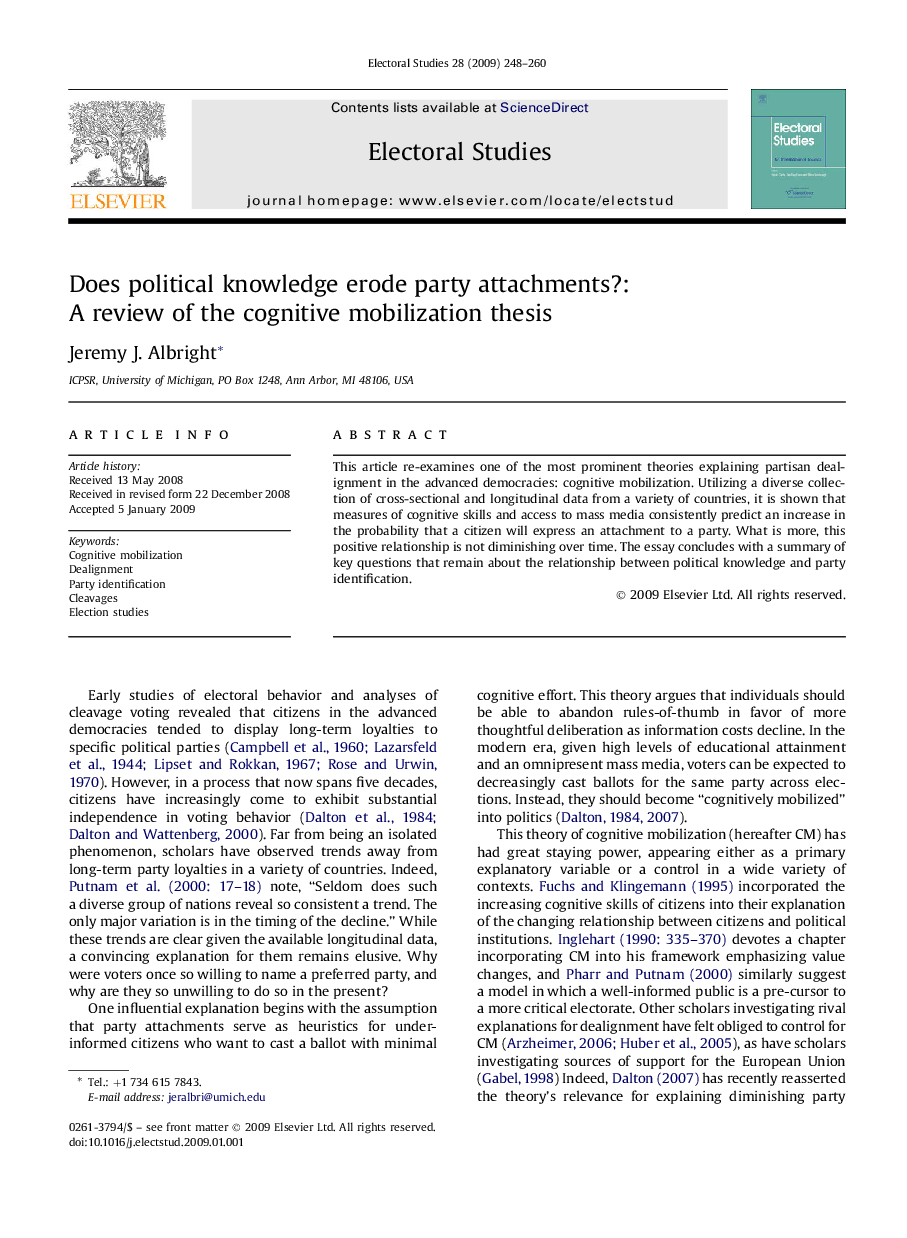| Article ID | Journal | Published Year | Pages | File Type |
|---|---|---|---|---|
| 1052135 | Electoral Studies | 2009 | 13 Pages |
Abstract
This article re-examines one of the most prominent theories explaining partisan dealignment in the advanced democracies: cognitive mobilization. Utilizing a diverse collection of cross-sectional and longitudinal data from a variety of countries, it is shown that measures of cognitive skills and access to mass media consistently predict an increase in the probability that a citizen will express an attachment to a party. What is more, this positive relationship is not diminishing over time. The essay concludes with a summary of key questions that remain about the relationship between political knowledge and party identification.
Related Topics
Social Sciences and Humanities
Social Sciences
Geography, Planning and Development
Authors
Jeremy J. Albright,
